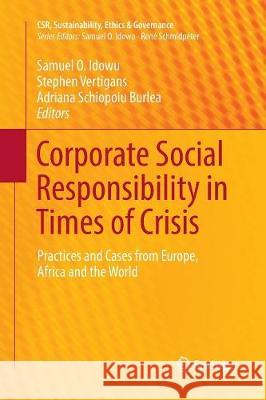Corporate Social Responsibility in Times of Crisis: Practices and Cases from Europe, Africa and the World » książka
topmenu
Corporate Social Responsibility in Times of Crisis: Practices and Cases from Europe, Africa and the World
ISBN-13: 9783319849980 / Angielski / Miękka / 2018 / 271 str.
Corporate Social Responsibility in Times of Crisis: Practices and Cases from Europe, Africa and the World
ISBN-13: 9783319849980 / Angielski / Miękka / 2018 / 271 str.
cena 564,88
(netto: 537,98 VAT: 5%)
Najniższa cena z 30 dni: 539,74
(netto: 537,98 VAT: 5%)
Najniższa cena z 30 dni: 539,74
Termin realizacji zamówienia:
ok. 22 dni roboczych.
ok. 22 dni roboczych.
Darmowa dostawa!
Kategorie:
Kategorie BISAC:
Wydawca:
Springer
Seria wydawnicza:
Język:
Angielski
ISBN-13:
9783319849980
Rok wydania:
2018
Wydanie:
Softcover Repri
Ilość stron:
271
Waga:
0.42 kg
Wymiary:
23.39 x 15.6 x 1.63
Oprawa:
Miękka
Wolumenów:
01











